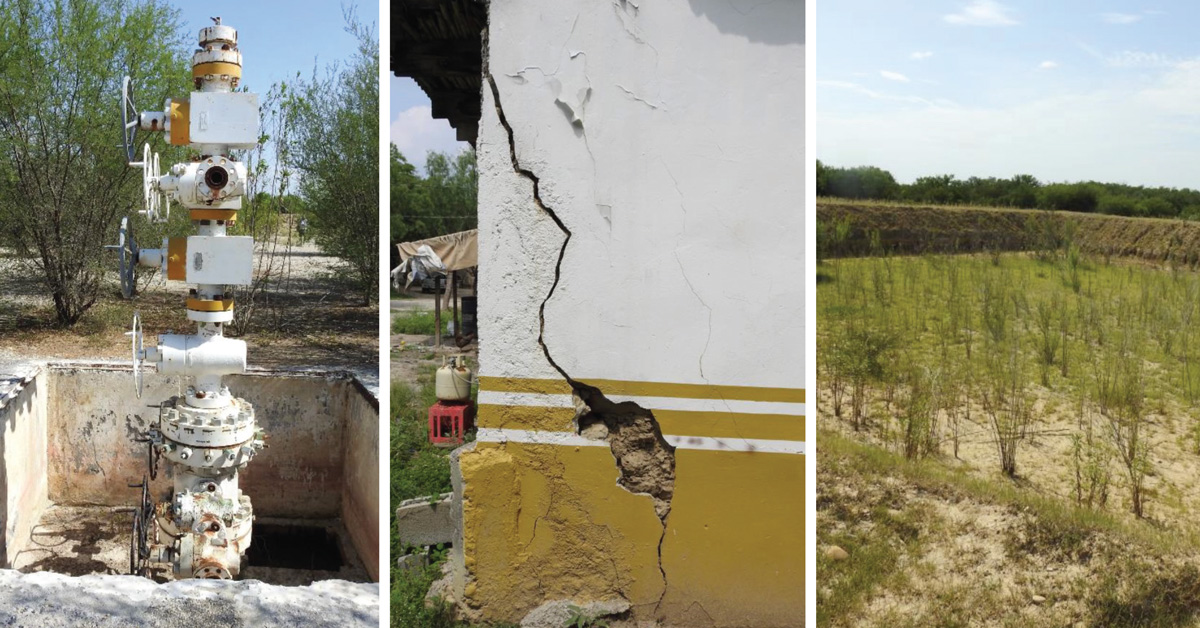CEC Council Votes to Develop Factual Record on Hydraulic Fracturing Submission on Enforcement Matters, in Nuevo Leon, Mexico
Montreal, 2 November 2023 — The Council of the Commission for Environmental Cooperation (CEC), composed of the three highest environmental authorities in Canada, Mexico and the United States, voted unanimously, in Council Resolution 23-05, to instruct the CEC Secretariat to develop a factual record with regard to submission SEM-18-003 (Hydraulic Fracturing in Nuevo Leon).
The submission asserts that Mexico is failing to effectively enforce environmental laws with respect to hydraulic fracturing operations in the municipality of Los Ramones in the State of Nuevo Leon, Mexico.
In its resolution, the CEC Council notes that the Secretariat recommended the development of a factual record in September 2020, following Mexico’s response. In a statement outlining the Council’s reasoning, Canada and Mexico explained they did not find the preparation of a factual record warranted for assertions related to the preparation of an environmental impact statement and compliance with public participation requirements, in light of information that the Government of Mexico submitted in its response. The Council now instructs the Secretariat to prepare a factual record with respect to two wells located in the municipality of Los Ramones, Nuevo León, Mexico, regarding sustainable water use during the exploration phase and the enforcement of safety measures to prevent harm or deterioration of natural resources.
The purpose of a CEC factual record is to provide an objective presentation of the facts relevant to assertions submitted under the Submissions on Enforcement Matters (SEM) process, and to allow readers to draw their own conclusions regarding a Party’s environmental law enforcement. Although a factual record does not contain recommendations, it is expected to outline the history of the environmental enforcement issue raised in the submission, the relevant legal obligations of the Party in question, and the actions of the Party in fulfilling those obligations, thus serving as a valuable information-sharing tool.
The SEM process is governed by the United States-Mexico-Canada Agreement (USMCA) since July 1, 2020. However, the submission SEM-18-003 (Hydraulic Fracturing in Nuevo Leon) was filed in 2018 while the North American Agreement on Environmental Cooperation (NAAEC) was in force and is accordingly being processed under that agreement.
For more information:

The CEC SEM Process
The CEC Submissions on Enforcement Matters process supports public participation, information-sharing between governments and the public, and transparency and openness in the effective enforcement of environmental law in North America. If you have reason to believe that an environmental law is not being effectively enforced by Canada, Mexico or the United States, the SEM process may address your concerns.
As of 1 July 2020, the CEC’s SEM process is governed by USMCA Articles 24.27 and 24.28 of the Environment Chapter of the free trade agreement between Canada, Mexico and the United States (CUSMA, T-MEC, USMCA).
Want to learn more about the SEM process? Please watch this two-minute video for an introduction: